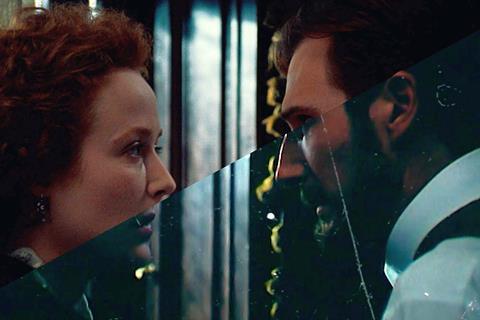
The National Film Institute Hungary’s Film Archive and Filmlab is premiering a restored print of István Szabó’s 1999 award-winning film Sunshine in Cannes Classics, in the presence of the director, his producer Robert Lantos and György Ráduly, director of the National Film Institute Film Preservation and Technology Division Hungary.
Szabó has a rich history at Cannes: five times in competition, he won the best screenplay and Fipresci prizes in 1981 for Mephisto, which went on to win the Academy Award for best foreign language film, and the jury prize in 1985 for Colonel Redl.
This year he will be honoured at the festival as part of Fipresci’s centenary celebrations.
Sunshine stars Ralph Fiennes, Rachel Weisz and Jennifer Ehle and traces five generations of a Hungarian Jewish family from the mid-19th century to the fall of the Iron Curtain. It premiered in the Toronto International Film Festival in September 1999 and went on to win three European Film Awards.
The film is one of nine feature films and five shorts by Szabó to have undergone complete restoration and is the latest in the NFI’s 35-year operation to rescue Hungary’s film heritage.
The full restoration in 4K of Sunshine was prepared from the film’s internegative and digital audio masters, frames of which had suffered spoiling and partial corruption. The film went through the labour intensive and meticulous process that the NFI Filmlab provides for every restoration.
“We offer the complete film restoration chain, from the expertise of the original elements and their mechanical repair, through digitization, digital restoration of image and sound followed by colour grading, to new elements for film distribution and preservation,” says NFI Filmlab Head Viktória Sovák.
“While analogue technology laid the foundation for the film industry, digital technology has brought about significant advantages that complement it. The advanced digital tools and processes can fix damage that we couldn’t fix with analogue technology. It also enabled the creation of stunning visual effects through computer-generated imagery.”
The process can bring out elements that would never have been achievable when the film was shot. This was the case with Sunshine: when restoring the film’s original colours during the colour grading process, the restoration team worked with its cinematographer Lajos Koltai. He was able to make several adjustments to the digital material during colour grading including highlighting tiny details in the film’s exterior shots which the technology used during filming would not allow.
The NFI programme of restoring films and preserving nitrate film stock began in the 1990s using analogue technology. Advances in digital restoration in the 2000s have meant that, since 2017, the NFI Film Restoration Programme has completed restoration of 403 feature films and documentaries, animations and shorts as well as digitising 55 volumes of newsreels.
Among the filmmakers whose work the programme has fully restored are Zoltán Fábri, Miklós Jancsó, Márta Mészáros and Béla Tarr. Many have been screened at international film festivals - including Cannes Classics, Berlinale Classics, Venice Classics and Il Cinema Ritrovato Bologna - and have enjoyed international distribution. Hungarian premieres take place at the NFI’s Budapest Classics Film Marathon.
“These masterpieces are telling important stories about our European history of the 20th Century,” says György Ráduly director of the Film Preservation Division of the National Film Institute Hungary (NFI).
The programme operates under a precise set of guidelines: to highlight the most important values of Hungarian film history, with particular regard to outstanding, internationally-recognized and sought-after films; to rescue works that are most at risk; and to make accessible those animated films, popular films, documentaries and newsreels that represent vital historical source material.
“NFI Filmlab is one of the very few film laboratories in Europe that provides overall film post-production services,” says Sovák.
“We offer the complete analogue service, combined with cutting-edge digital solutions. One of our primary missions is to revive and rejuvenate heritage films for today’s audiences. With the analog film recording and positive printing, we can guarantee that digitally restored classic films will be safe for a long while, as the lifespan of black and white film is currently estimated at 500 years.”
















![[L-R]: Amanda Villavieja, Laia Casanovas, Yasmina Praderas](https://d1nslcd7m2225b.cloudfront.net/Pictures/274x183/6/4/1/1471641_pxl_20251224_103354743_618426_crop.jpg)












